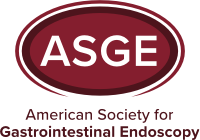Mayo Clinic Florida
Mayo Clinic Florida
4500 San Pablo Road
Graduate Medical Education Stabile North 790
Jacksonville, Florida 32225
904-953-2749 (V)
Website
1 Position Available
Program Type: Both ERCP & EUS
Authorized Administrative Official: Michelle Tuetken (email)
Program Director: Frank Lukens, MD (email)
Duration: 2 Year
Inclusive Dates of the Program: 7/1/2025 to 6/30/2027
Program Website: college.mayo.edu/academics/residencies-and-fellowships/advanced-endoscopy-fellowship-florida
Accepts applicants from outside of North America? No
Accepts applicants with J1 visas? Yes
Accepts applicants with H1B visas? Yes
Accepts applicants with E3 visas? No
Supervised ProceduresProcedure |
Faculty Involved in AEF Training | Total Annual Volume | Annual Volume with hands-on AEF Involvement |
|---|---|---|---|
| ERCP | 3 | 400 | 350 |
| EUS | 4 | 808 | 500 |
| Lower GI EMR | 5 | 310 | 200 |
| Esophagogastroduodenal EMR | 3 | 100 | 15 |
| Small bowel enteroscopy | 3 | 400 | 75 |
| ESD | 2 | 15 | N/A |
| Bariatric endoscopy | 2 | 30 | N/A |
Unsupervised Trainee ActivitiesProcedure |
Value |
|---|---|
| General GI procedures (per year) | 0 |
| Inpatient service (weeks/year) | 0 |
| Ambulatory clinics (per year) | 4 half days a month |
| Committed time for research (days/month) | 2 |
Program Reporting Summary
The ASGE Training Committee requested that each AEF program voluntarily submit an annual report summarizing their advanced endoscopy procedure volume. You can view the provided report below.
Requirements for Application
- Standard ASGE Application Packet
- ASGE Application
- Post-Undergraduate Education
- USMLE Scores
- Certification of Completion of Residency
- Prior to appointment in the advanced endoscopy fellowship, fellows should have completed a three-year ACGME-accredited gastroenterology fellowship
- Fellows from non-ACGME-accredited programs must have completed at least three years of gastroenterology education prior to starting the fellowship
- Personal Statement
- Curriculum Vitae
- 3 Letters of Reference
Additional Information about Program
The Advanced Gastrointestinal Endoscopy Fellowship Program provides the possibility of intense EUS training with the goal of developing future leaders in the field.
Use of a simulation based training will allow rapid acquisition of basic skills and enhanced exposure to new and advanced techniques. A complete text and video library is available to augment teaching.
Clinical Training
Upon completion of the Advanced Endoscopy fellowship, you should be able to:
• Utilize EUS to diagnose and manage patients with a variety of GI disorders.
• Identify the unique features of dedicated echoendoscopes, catheter probes, and EUS and EUS accessories
• Identify normal EUS anatomy
• Establish the T, N, and M stage for luminal tumors and pancreatic cancer
• Differentiate the various types of cystic pancreatic tumors
• Identify the utility of EUS for evaluating patients with chronic pancreatitis including autoimmune pancreatitis
• Differentiate the various subepithelial mass lesions
• Assess the N stage for lung cancer
• Integrate EUS into the care of patients with inflammatory bowel disease
• Demonstrate proper technique for EUS guided biopsy (FNA, Trucut)
• Recognize the technical aspects and role of interventional EUS procedures including, but not limited to, stone retrieval, cyst drainage, pseudocyst drainage, celiac plexus block and neurolysis, duodenal and other luminal stenting, and ampullectomy
• Begin the process of overseeing and teaching these skills and techniques to GI fellows
• Integrate proper reimbursement and billing into their practice
Rotation Schedule
The following is a sample of the Advanced Endoscopy Fellowship Weekly Schedule
The advanced endoscopy fellow will typically be assigned to 90% time doing EUS and ERCP, 5% time research and 5% time clinical service (if U.S. Board eligibile).
Didactic Training
In addition to hands-on performance of these techniques, the curriculum includes a series of didactic lectures. These lectures are provided by the EUS and ERCP staff, other GI and Non-GI physicians who utilize these techniques, radiologists, oncologists, and conferences directed by advanced fellows.
Conferences
In addition to the weekly GI divisional and research conferences, there are separate endoscopy conferences, GI divisional Endoscopy Group Meeting, and a monthly GI Research Group meeting. As an advanced fellow, you will be responsible for presenting at several of these forums and for the coordination of intermittent advanced endoscopy meetings.
Research Training
Regular and structured meeting are held between fellows and identified mentors to design and conduct research protocols. Fellows also work with other members of the GI Division with diverse skills and investigative backgrounds. Research projects are further developed and implemented in one of our varied GI Subspecialty Clinics and Interest Groups.
You will have dedicated time for work on mutually agreed upon research projects. The development of EUS-based studies is required. You will be encouraged to initiate the planning and dialogue of these studies prior to beginning the fellowship program.
Publications and Presentations
It is anticipated that the studies will generate results and information suitable for publication in a major GI subspecialty journal. The development of abstracts for at least two of the major national GI meetings (DDW week: AGA/ASGE; fall ACG) also is anticipated.
Teaching Opportunities
Opportunities are available for teaching rotating Gastroenterology fellows in the endoscopy suites and residents and fellows during conferences.
Evaluation
To ensure that you acquire adequate knowledge and develop your technical skills, your performance will be monitored quarterly during the course of your program training. You will be evaluated formally by your supervising faculty member on a regular basis and will meet with the program director to review these evaluations. In addition, you will regularly evaluate the faculty to ensure that your educational needs are being met.
Please Note: All data in this program description is entered on a voluntary basis
